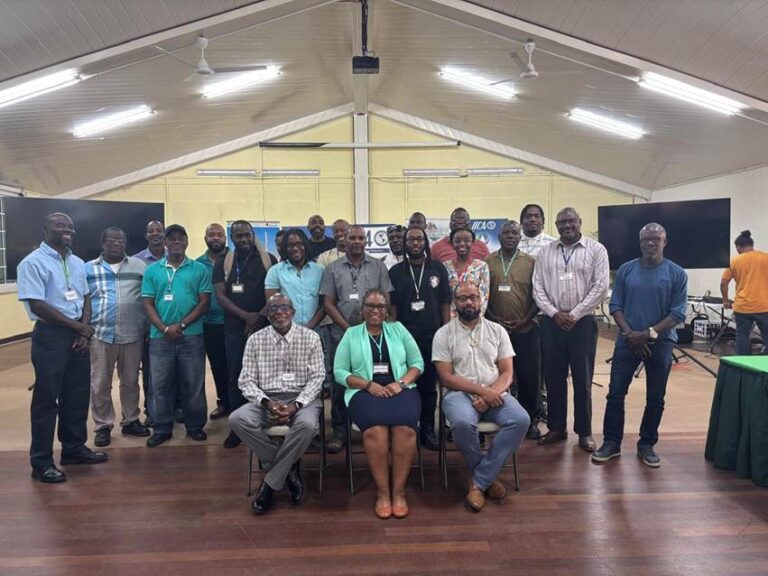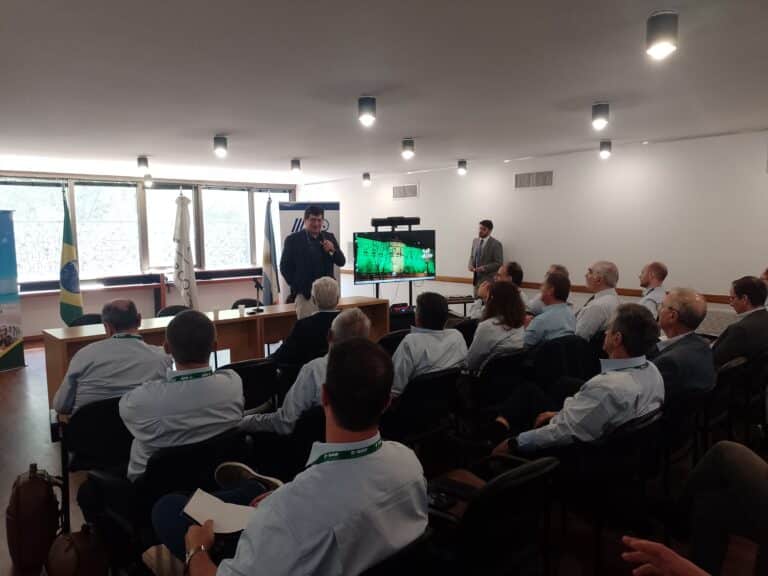The aim of the studies being carried out in countries of the region is to find commercial varieties of Jatropha that can be used to produce pure vegetable oil, biodiesel and biokerosene.
San Jose, Costa Rica, April 1, 2014 (IICA). In the past, Jatropha curcas L., or the Barbados nut plant, may have been used mainly to create live fences along roads in some Latin American and Caribbean (LAC) countries, but it now provides the biofuel used to generate electricity in the Galapagos Islands in Ecuador and, if several research projects under way in the region are successful, its oil could even be turned into aviation fuel.
According to the researchers who took part in a workshop on innovation for sustainable production of the plant and its byproducts, organized by the Inter-American Institute for Cooperation for Agriculture (IICA) and the Inter-American Development Bank (IDB), given the abundant genetic diversity of Jatropha in LAC it is only a matter of time before its use for commercial purposes increases, once the ongoing studies have identified the best varieties of the plant and the value chain for the product is in place.

“The challenge is the time involved. Soybean and bean research projects take only one year to complete, but the time frame is seven years in the case of Jatropha,” pointed out Bruno Laviola of the Brazilian Agricultural Research Corporation (EMBRAPA), who took part in the workshop held at the Fabio Baudrit Moreno Agricultural Experimental Station, in Costa Rica, in March 2014.
Given the genetic wealth of the plant in Chiapas, Mexico, thousands of kilometers to the north of Costa Rica, many experts think that Jatropha originates from that area, explained the leader of the energy program of Mexico’s National Institute for Forestry, Agricultural and Livestock Research (INIFAP), Alfredo Zamarripa.
“The diversity of the genetic resources that exist is the key to developing varieties with the characteristics that we’re looking for, such as high yield, high oil content and non-toxic seed cakes, a byproduct of the extraction process,” he observed.
In LAC, the main products expected to be marketed once the Jatropha value chain is in place are pure vegetable oil, biodiesel and biokerosene, explained Orlando Vega, an IICA specialist in renewable energies.
To promote the industry across the region, the workshop participants – researchers from Costa Rica, Brazil, Mexico, the United States, Colombia, Ecuador, Nicaragua, Guatemala, Belize and Peru – set five priorities for the work going forward.
“The research, development and innovation process in the Jatropha value chain should focus on genetic improvement, agro-climatic zoning of crops, sustainability, the selection of the best production systems and regulation,” Vega commented.
Based on those priorities, several research projects are already under way in LAC. In Brazil, since 2010 researchers have been endeavoring to find the most productive varieties and improve fertilizer use; in Mexico, three varieties will be liberated this year that offer higher yields and a higher rate of return; and in Ecuador, smallholders receive 75% of the profits from the sale of Barbados nut oil, which is used to produce energy in the Galapagos Islands.
How does the Galapagos project work? Jatropha is grown and Barbados nut oil produced in the province of Manabí (mainland Ecuador); the latter then is used to generate electricity on the island of Floreana. Two editions of IICA’s radio program, AgroEnlace, explain the details of the outstanding initiative, called Piñon para Galápagos (you can listen to them here 1 and here 2).
The expectations of the Jatropha research, development and innovation process (R&D+i) in LAC are so high that the possibility of making biokerosene for commercial aviation is even being mooted. There is currently demand for the product from the global aeronautics industry, observed Luis Fernando Campuzano, a specialist with the Colombian Agricultural Research Corporation (CORPOICA).
“As it is a relatively new subject, integrated efforts at the regional level are required to produce the research more quickly,” Campuzano noted.
IICA aims to promote such integration and strengthen R&D+i on Jatropha in LAC through knowledge sharing and agreements to facilitate the mobilization of genetic materials, according to Jamil Macedo, Executive Secretary of the Cooperative Program on Agricultural Research, Development and Innovation for the South American Tropics (PROCITROPICOS).
IICA operates the Executive Secretariat of that program.
During the workshop in Costa Rica, the Deputy Director General of the Institute, Lloyd Day, met with the director of the Roundtable on Sustainable Biomaterials (RSB), Barbara Bramble, to discuss matters of mutual interest in the area of bioenergies.
RSB, an international initiative of public and private entities and multilateral agencies, promotes the adoption of global standards to certify the sustainable production of biomaterials, including biofuels.
For more information, contact:
orlando.vega@iica.int











